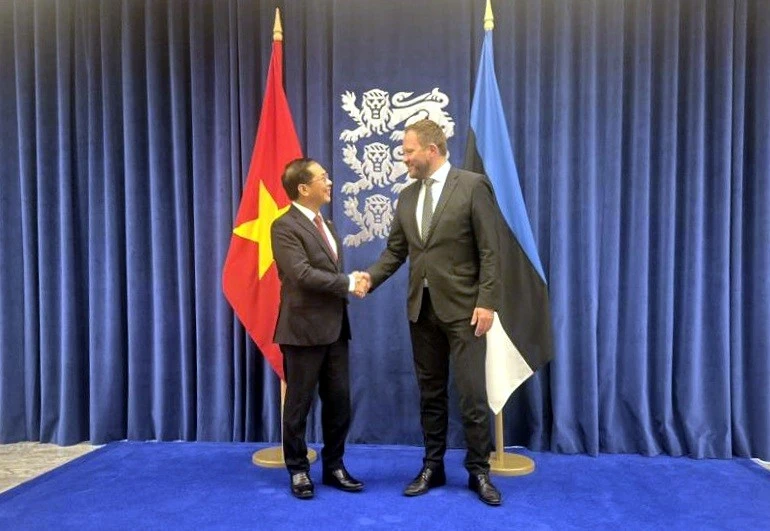HCMC – Vietnam and Estonia have agreed to deepen bilateral cooperation, particularly in digital transformation and e-government, while accelerating efforts to ratify the EU-Vietnam Investment Protection Agreement (EVIPA), reported the Vietnam News Agency.
During an official visit to Estonia by Prime Minister Pham Minh Chinh, Deputy Prime Minister and Minister of Foreign Affairs Bui Thanh Son held talks with Estonian Foreign Minister Margus Tsahkna in Tallinn on June 6.
Son expressed appreciation for Estonia’s support in organizing the first-ever official visit by a Vietnamese prime minister to the Baltic nation. He emphasized Vietnam’s desire to strengthen collaboration across various fields, particularly in e-government, digital transformation, data center development, and the application of information technology in state governance and socio-economic development.
Foreign Minister Tsahkna highlighted the significance of the visit, describing it as an important milestone in bilateral ties. He reaffirmed Estonia’s commitment to enhancing relations with the Asia-Pacific region, including Vietnam, and pledged to advocate for the swift ratification of the EVIPA by other EU member states.
The two ministers agreed to expand high-level exchanges and welcomed the signing of a memorandum of understanding (MOU) between their respective foreign ministries during this visit. They stressed the importance of implementing a political consultation mechanism, policy dialogue, and cooperation in information technology aimed at building a modern digital diplomacy framework.
Both sides underlined the coordinating role of their foreign ministries in ensuring the effective implementation of agreements reached during PM Chinh’s visit.
Additionally, the two ministers exchanged views on regional and global issues of mutual interest. On maritime matters, they agreed to maintain consultations at multilateral forums, particularly the United Nations, to promote peace, stability, and sustainable development. They reiterated support for the peaceful settlement of disputes through dialogue based on international law and the United Nations Charter, including the 1982 United Nations Convention on the Law of the Sea (UNCLOS).









